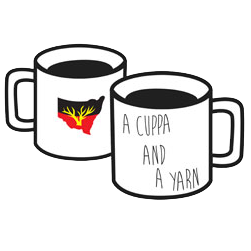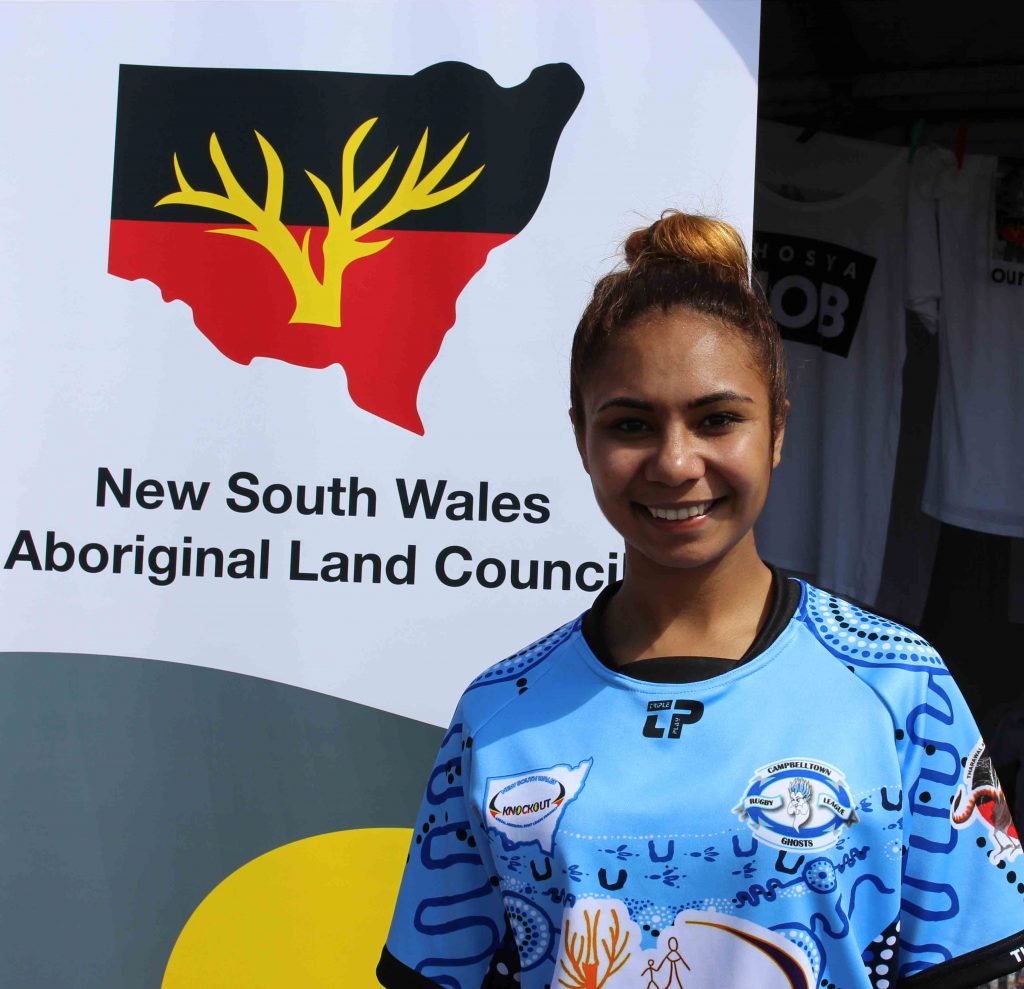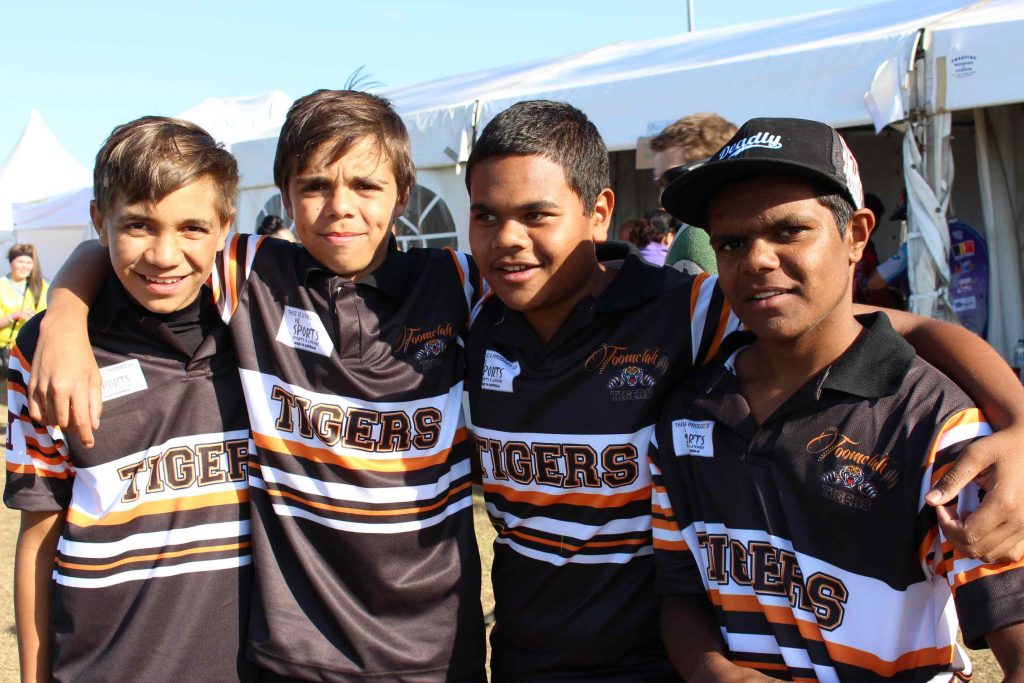17 November, 2014
From the 1868 Aboriginal Cricket Team tour of England to Cathy Freeman’s gold medal moment at the 2000 Sydney Olympics, our history has been punctuated with proud sporting achievements.
Traditionally, sport has been a sphere of excellence, one of the few arenas where individual athletes could compete and excel on an even playing field, often during times of profound social inequality.
At the recent 2014 Koori Knockout in Raymond Terrace, former Australian netballer Marcia Ella-Duncan reflected on that sentiment.
“Sport for Aboriginal people, has been one of those levelers if you like, where we get to compete against everybody else from all different backgrounds and, you know, we all play by the same rules. Sport generally for Aboriginal people, I think, is a wonderful playing field in terms of fairness and equal opportunity,” she said.
Those values, along with the profile and achievements of Aboriginal athletes across many Australian sporting codes, have helped to influence the role of sport as an advocate of social justice. As an example, only a few months ago, the National Rugby League launched its new ‘stretch’ Reconciliation Action Plan, which saw it announce its support for constitutional recognition. At its launch, CEO Dave Smith commented that he believed that “the NRL can influence social change and make a real difference to people’s lives.”
But it is at the community level, where sport arguably has its most significant impact. The Knockout was a shining example of the power that sport has, in keeping culture strong.
Former NRL player Dean Widders described it as “our new way of having our tribal get together, with our boys expressing themselves. Our communities are here playing for tribes. It’s great to see that this is our way of boys becoming men; it’s our initiation ceremony. Many of our old traditional ceremonies come through in these events these days. “
Former Wallabies captain and Executive Producer of NITV Sports, Mark Ella, said he had been watching the Knockout since he was a kid and that it meant an awful lot to community. “It’s very special in terms of getting together with our brothers and sisters, aunts and uncles, nieces and nephews,” he said. “It’s always good to be around this type of environment. It’s safe, it’s good, you can see the emotion and excitement from everybody around the field and it’s just a phenomenon.”
Events like the Knockout rely on the support of a wide range of organisations and individuals and the NSWALC is proud to be one of them. Chairmen Craig Cromelin said “Knockout is one of the biggest cultural events in the country and brings people together from all walks of life.
“Many of our members are involved as players or supporters and many of the teams are associated with their local land councils. We think it’s wonderful to be able to help bring this together.”
In reflecting on his own experiences playing football as a young man, Chairman Cromelin said that it was “never just about sport, but about joining the mob together. It gives you a common goal and gives a sense of what it means to truly be part of a team.”
The impact that sport can have on community is highlighted at large events such as Knockout, but there are also many other organisations and programs, working with communities to achieve social outcomes.
Using sport as that vehicle to connect and inspire at the community level, is something that the Sydney based National Aboriginal Sporting Chance Academy (NASCA), set up by former NRL player David Liddiard, aims to do. They work with Aboriginal young people to promote school engagement, health, and cultural pride and initially started out using sport as a vehicle to distribute messages and teach values.
Recently, NASCA supported young Aboriginal people in Sydney’s Marickville to learn the martial art of Jiu-Jitsu. Students were encouraged to participate in the program to improve health and fitness as well as learn some valuable life skills, including strategy, discipline and teamwork.
Trent Dyer, NASCA Project Coordinator said, “the course is based on the building blocks and basic principles of Jiu-Jitsu but it’s also got a strong message about diffusing an antagonistic situation, and practicing respect for each other.”
Leanne Townsend, NASCA CEO, stressed the importance of sports programs to positively impact young people, saying that “sports and mentoring have a positive impact on our young people on many levels. Skills learnt on the sports field or in a jiu-jitsu training room are just as transferable as those learnt in the classroom and often influence the ways we feel about ourselves and each other.”
Along with the many physical and psychological benefits of sport, NASCA also aims to use sport to instill a sense of cultural pride, recognising that it can also encourage and inspire great personal growth and help to build and maintain a stronger connection to cultural identity.
Trent Rose, who played for the winning team of Walgett at the recent 2014 Koori Knockout, alongside brothers George and Matt, said that playing for his hometown and his people was an expression of his connection to culture. “Words can’t describe what it feels like to throw on a Walgett jumper and represent not just the town of Walgett, but the Gomeroi people.” He said.
Walgett Aboriginal Connection teammate Joel Thompson agreed and reflected on how his career as a professional NRL player had helped him to develop personally and seek broader aspirations.
“Sport has definitely shaped my cultural identity. It has taken me out of the country and given me an opportunity to travel the world. But it has also set the platform for me to get out into the community and do things I want to do with different programs and stuff so, you know, sport has really played a massive part in my life.”
Although an increasing number of Aboriginal athletes are achieving success at the highest levels, it is the community impact that remains at its heart.
As Marcia Ella- Duncan says, “our celebrations are about athleticism, but equal to that, it’s about sport bringing community together.



